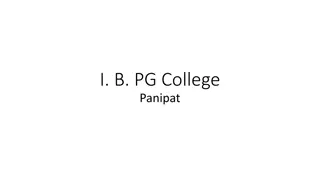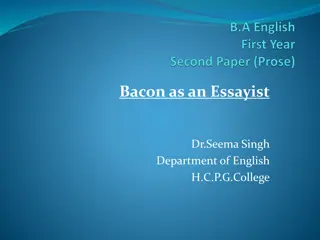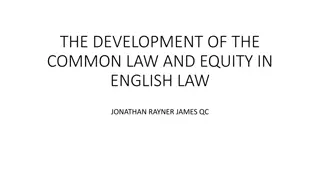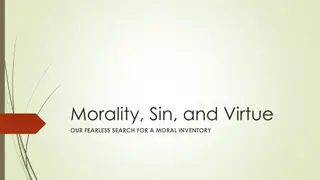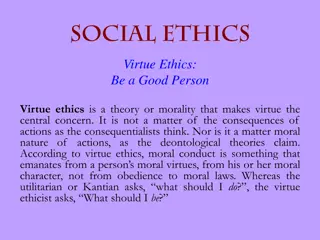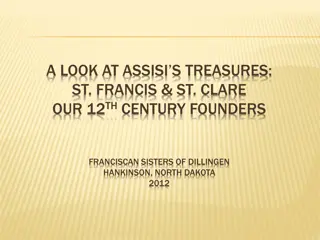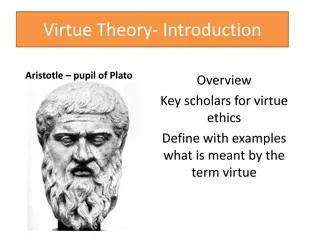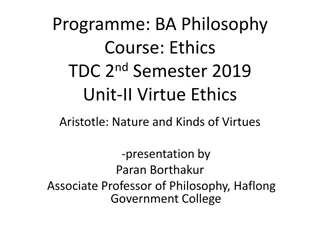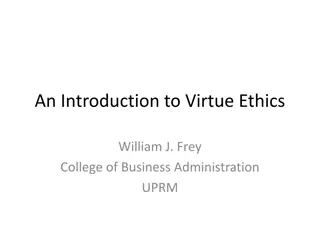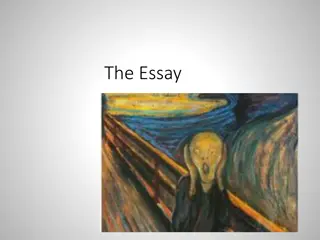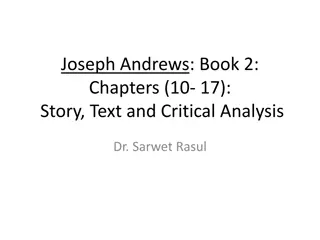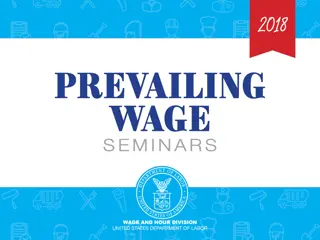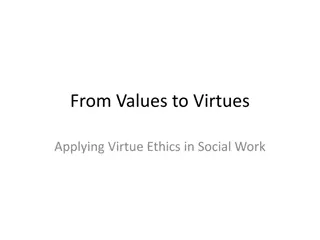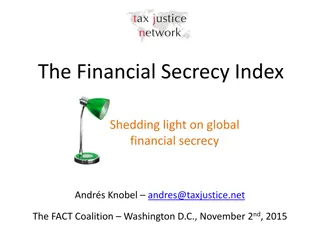On the Virtue of Secrecy: Reflections by Francis Bacon
Secrecy holds a unique virtue, as explored by Francis Bacon in these profound reflections. He delves into the importance of secrecy in confessions, the vulnerability of open disclosure, and the value of keeping certain matters hidden. Bacon also discusses the impact of secrecy on one's character, behavior, and self-discovery, highlighting the complexities and nuances associated with maintaining discretion in various aspects of life.
Download Presentation

Please find below an Image/Link to download the presentation.
The content on the website is provided AS IS for your information and personal use only. It may not be sold, licensed, or shared on other websites without obtaining consent from the author.If you encounter any issues during the download, it is possible that the publisher has removed the file from their server.
You are allowed to download the files provided on this website for personal or commercial use, subject to the condition that they are used lawfully. All files are the property of their respective owners.
The content on the website is provided AS IS for your information and personal use only. It may not be sold, licensed, or shared on other websites without obtaining consent from the author.
E N D
Presentation Transcript
For the first of these, secrecy; it is indeed the virtue of a confessor. And assuredly, the secret man heareth many confessions.
For who will open himself, to a blab or a babbler? But if a man be thought discovery; as the more close air sucketh in the more open; and as in confession, the revealing is not for worldly use, secret, it inviteth
but for the ease of a mans heart, so knowledge of many things in that kind; while men rather discharge their minds. In few words, mysteries are due to secrecy. secret men come to the minds, than impart their
Besides (to say truth) nakedness is uncomely, as well in mind as body; and it addeth no small reverence, to men s manners and actions, if they be not altogether open.
As for talkers and futile persons, they credulous talketh what he knoweth, will also talk what he knoweth not. are commonly withal. vain he and that For
Therefore set it down, that an habit of secrecy, is both politic and moral. And in this part, it is good that a man s face give his tongue leave to speak.
For the discovery of a man s self, by the tracts of his countenance, is betraying; by how much it is many times more marked, and believed, than a man s words. a great weakness and
For dissimulation; it followeth many times necessity; so that he that will be secret, must be a dissembler in some degree. the second, which is upon secrecy, by a
For men are too cunning, to suffer a carriage between both, and to be secret, balance on either side. man to keep an indifferent without swaying the
They will so beset a man with questions, and draw him on, and pick it out of him, that, without an absurd silence, he must show an inclination one way; or if he do not, they will gather as much by his silence, as by his speech.
As for equivocations, (the misleading use of a term with more than one meaning speeches, they cannot hold out long. So that no man can be secret, except he give himself a little scope of dissimulation; which is, as it were, but the skirts or train of secrecy. or sense) or oraculous
But for the third degree, which is simulation, and false profession; that I hold more culpable, and less politic; except it be in great and rare matters.
And therefore a general custom of simulation degree) is a vice, using either of a natural falseness or fearfulness, or of a mind that hath some main faults, (which is this last
which because a man must needs disguise, it maketh him practise simulation in other things, lest his hand should be out of use.
The simulation and dissimulation are three. opposition, and to surprise. For where published, it is an alarum, to call up all that are against them. great advantages of First, to lay asleep a man s intentions are
The second is, to reserve to a man s self a fair retreat. For if a man engage himself by a manifest declaration, he must go through or take a fall.
The third is, the better to discover the mind of another. For to him that hardly show themselves adverse; but will fair let him go on, and turn their freedom of speech, to freedom of thought. opens himself, men will
And therefore it is a good shrewd proverb of the Spaniard, Tell a lie and find a troth.
As discovery, There disadvantages, to set it even. if there were no way of but be by also simulation. three
The dissimulation with them a show of fearfulness, which in any business, doth spoil the feathers, of round flying up to the mark. first, that simulation commonly and carry
The second, that it puzzleth and perplexeth the conceits of many, that perhaps would otherwise co- operate with him; and makes a man walk almost alone, to his own ends.
The third and greatest is, that it depriveth a man of one of the most action; which is trust and belief. principal instruments for
The temperature, is to have openness in fame and opinion; secrecy in habit; dissimulation in seasonable use; and a power to feign, if there be no remedy. best composition and
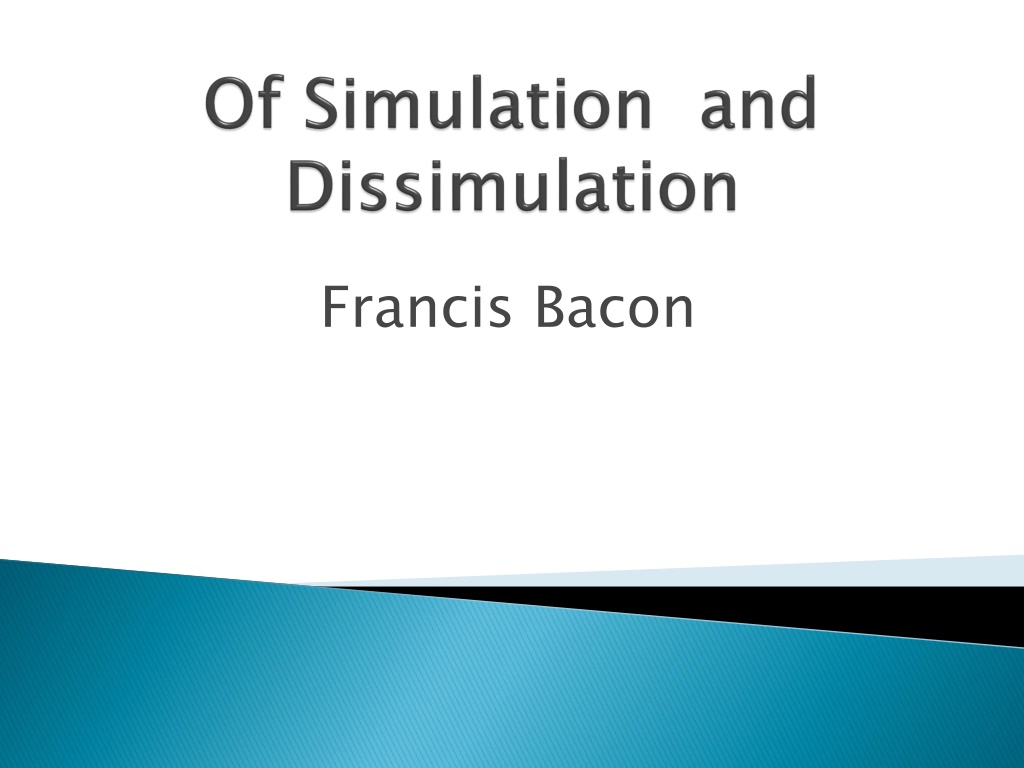
 undefined
undefined









